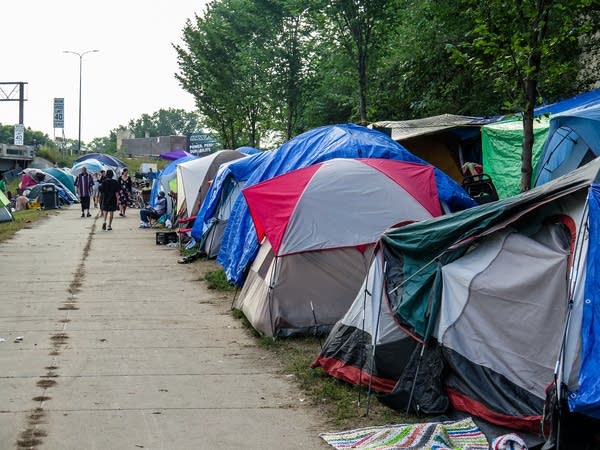Minneapolis mayor says plans are progressing to address homeless encampment

Dozens of tents are crammed into a patch of grass near Franklin Ave. and Highway 55 in south Minneapolis on Wednesday, Sept. 12, 2018.
Mark Zdechlik | MPR News
Go Deeper.
Create an account or log in to save stories.
Like this?
Thanks for liking this story! We have added it to a list of your favorite stories.


